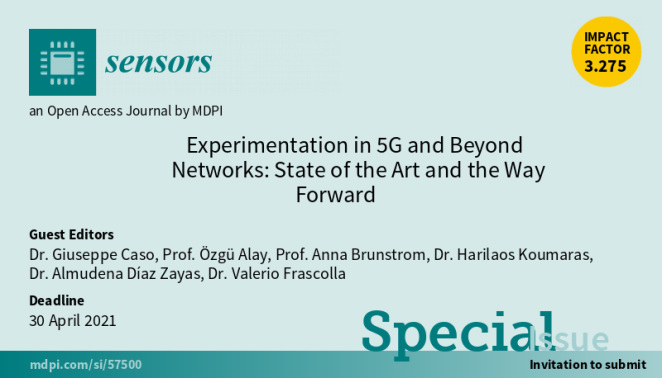
As defined by the 3rd Generation Partnership Project (3GPP) standards in the Release 15 specifications, only recently has the first phase of the 5th Generation (5G) of cellular systems started to be deployed worldwide. Each country, based on its own needs and local market requests, has decided on its own deployment roadmap of 5G services. For instance, as of August 2020, not all European countries have launched commercial 5G services. This ongoing first phase of deployment will be followed by enhanced versions of the standards in the following years. Therefore, in parallel with the commercial rollout, the capability to experiment and validate the planned new features, thanks to data-driven analyses based on field trials and measurements, is of extreme interest to the whole 5G ecosystem, including researchers, standardization bodies, network operators, small and medium-sized enterprises, technology and equipment providers, and verticals. These analyses make it possible to identify correlations between deployment choices and achievable 5G key performance indicators (KPIs), while guiding towards system optimization and enhancement. The definition of KPIs, as well as measurement and validation methodologies, are complex tasks in 5G scenarios, due to intrinsic dependencies with specific use cases, services, and applications.
Within the above context, this Special Issue aims to collect original contributions on experimental aspects of 5G and beyond networks and systems. Topics of interest include, but are not limited to:
- Design, implementation, and usage of 5G and beyond experimental testbeds and platforms (e.g., those in the scopes of EU 5G-PPP and US PAWR programs);
- Design, implementation, and usage of 5G open-source tools for automated resource instantiation, management, monitoring, and data analysis;
- End-to-end measurement and validation frameworks for 5G KPIs;
- Experimental analysis and ML/AI-based modeling and optimization of 5G technologies and paradigms, including:
- 5G New Radio (NR) and 5G Core (5G Core);
- Network slicing, management and orchestration, and SDN/NFV;
- MEC, fog and edge computing;
- 5G multi-access and multi-connectivity at different network layers (e.g., 5GNR-LTE interworking, 5GNR-WiFi aggregation, and multipath transport protocols applied to 5G);
- Spectrum sharing, coexistence, and management mechanisms;
- mmWave communication and networking;
- Experimental analysis and ML/AI-based modeling and optimization of 5G vertical-specific applications, including
- High-demanding multimedia applications;
- Smart cities;
- Industrial automation;
- Intelligent transport systems and vehicular applications;
- E-health;
- Mission-critical services;
- 5G and beyond standardization activities towards KPI measurement and validation;
- Description and usage of 5G open datasets.
The Special Issue seeks original, unpublished papers addressing key issues and challenges in 5G and beyond experimentation. Survey, review, and tutorial papers on aspects related to the above topics will also be considered for publication. Papers shall contain original material, not currently submitted elsewhere. All submissions will be judged by their technical merit and relevance to the Special Issue.
Guest Editors
Dr. Giuseppe Caso
Prof. Anna Brunstrom
Prof. Özgü Alay
Dr. Harilaos Koumaras
Dr. Almudena Díaz Zayas
Dr. Valerio Frascolla
Manuscript Submission Information
Manuscripts should be submitted online at www.mdpi.com by registering and logging in to this website. Once you are registered, click here to go to the submission form. Manuscripts can be submitted until the deadline. All papers will be peer-reviewed. Accepted papers will be published continuously in the journal (as soon as accepted) and will be listed together on the special issue website. Research articles, review articles as well as short communications are invited. For planned papers, a title and short abstract (about 100 words) can be sent to the Editorial Office for announcement on this website.
Submitted manuscripts should not have been published previously, nor be under consideration for publication elsewhere (except conference proceedings papers). All manuscripts are thoroughly refereed through a single-blind peer-review process. A guide for authors and other relevant information for submission of manuscripts is available on the Instructions for Authors page. Sensors is an international peer-reviewed open access semimonthly journal published by MDPI.
Please visit the Instructions for Authors page before submitting a manuscript. The Article Processing Charge (APC) for publication in this open access journal is 2000 CHF (Swiss Francs). Submitted papers should be well formatted and use good English. Authors may use MDPI’s English editing service prior to publication or during author revisions.